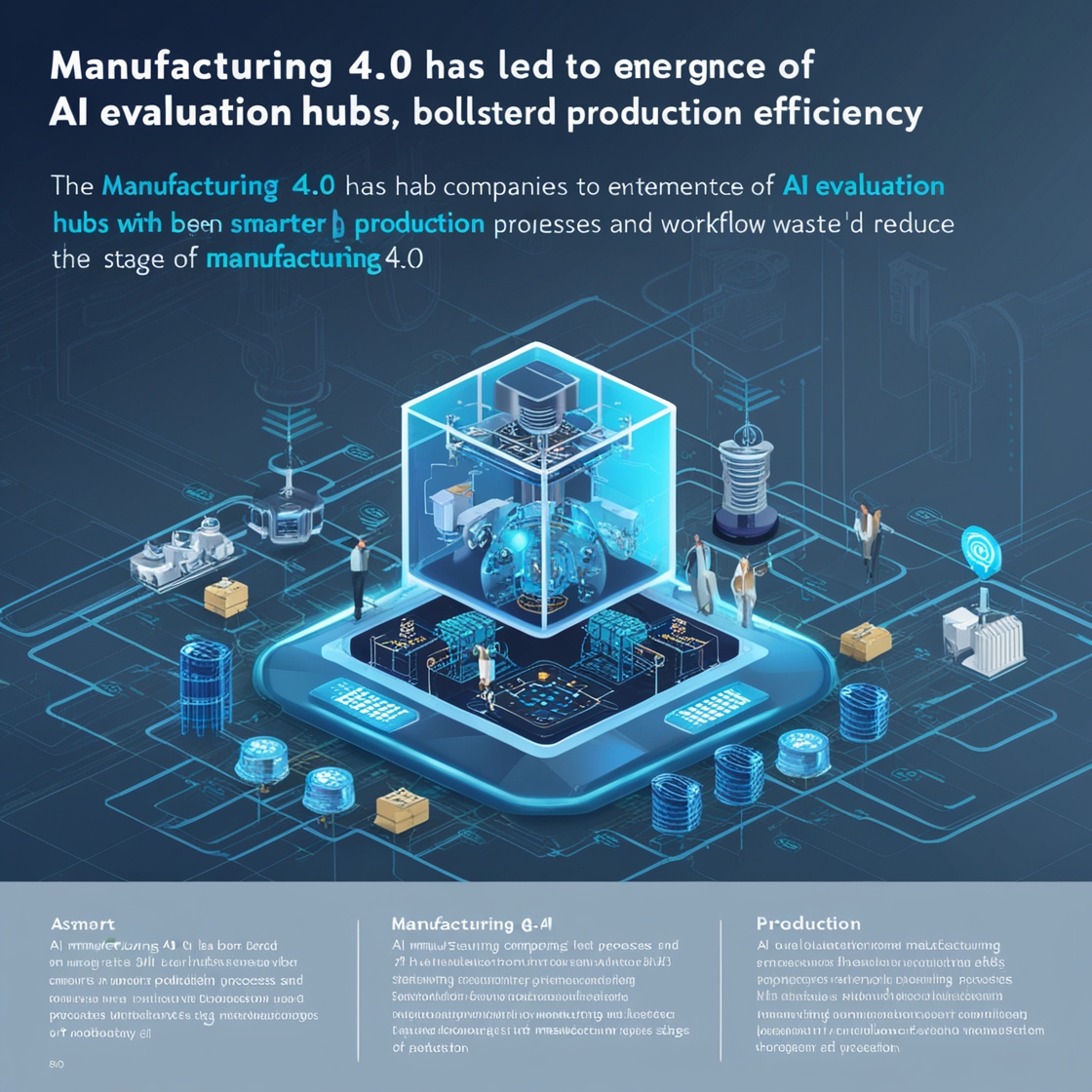Introduction
In today’s fast-paced industrial landscape, Manufacturing 4.0 stands as the beacon of technological advancement. With AI at its core, this new wave of manufacturing promises unparalleled efficiency and innovation. But what exactly does Manufacturing 4.0 entail, and how do AI evaluation hubs fit into this paradigm? This article delves into these questions, exploring the transformative impact of AI on production efficiency.
What is Manufacturing 4.0?
Definition and Key Components
Manufacturing 4.0, also known as the Fourth Industrial Revolution, represents a fusion of advanced technologies such as the Internet of Things (IoT), big data, and artificial intelligence (AI). This era is characterized by smart factories where machines are interconnected and communicate with each other to optimize production processes.
Historical Context and Evolution from Previous Industrial Revolutions
To understand Manufacturing 4.0, it’s essential to look back at its predecessors:
- First Industrial Revolution: Introduced mechanization through steam and water power.
- Second Industrial Revolution: Brought mass production with electricity and assembly lines.
- Third Industrial Revolution: Introduced automation and computer technology.
Manufacturing 4.0 builds on these advancements, integrating digital technologies to create more flexible, efficient, and intelligent production systems.
The Role of AI in Manufacturing 4.0
AI Technologies Transforming Manufacturing
AI technologies such as machine learning, neural networks, and robotics are at the heart of Manufacturing 4.0. These technologies enable predictive maintenance, quality control, supply chain optimization, and more.
Benefits of AI Integration
Integrating AI into manufacturing processes offers numerous benefits:
- Enhanced Efficiency: AI can optimize production schedules, reducing downtime and increasing output.
- Improved Quality: Machine learning algorithms can detect defects and ensure consistent product quality.
- Cost Reduction: AI-driven automation reduces labor costs and minimizes material waste.
Understanding AI Evaluation Hubs
Definition and Purpose
AI evaluation hubs are centralized platforms where AI algorithms are developed, tested, and deployed. These hubs serve as the brain of smart factories, continuously analyzing data to improve production processes.
Key Functions of AI Evaluation Hubs
- Data Collection and Analysis: Gathering data from various sensors and machines.
- Algorithm Development: Creating and refining AI models to optimize production.
- Real-Time Monitoring: Continuously monitoring production processes to identify and address issues promptly.
Impact of AI Evaluation Hubs on Production Efficiency
Streamlining Production Processes
AI evaluation hubs streamline production by automating routine tasks, reducing human error, and ensuring optimal machine performance.
Predictive Maintenance
By analyzing machine data, AI evaluation hubs can predict when equipment will fail, allowing for timely maintenance and reducing unexpected downtime.
Quality Control
AI-powered quality control systems can detect defects with high precision, ensuring that only products meeting the highest standards reach the market.
Supply Chain Optimization
AI evaluation hubs enhance supply chain management by predicting demand, optimizing inventory levels, and reducing lead times.
Case Studies: Real-World Applications of AI Evaluation Hubs
Case Study 1: Automotive Industry
In the automotive industry, AI evaluation hubs have revolutionized production lines. For instance, a leading car manufacturer implemented an AI-driven system that reduced assembly line downtime by 30% and improved overall production efficiency by 20%.
Case Study 2: Electronics Manufacturing
An electronics company utilized AI evaluation hubs to enhance quality control. The AI system detected defects in real-time, reducing the defect rate by 50% and significantly cutting down on waste.
Challenges and Considerations
Data Security and Privacy
With the increasing reliance on data, ensuring its security and privacy becomes paramount. Manufacturers must implement robust cybersecurity measures to protect sensitive information.
Integration with Legacy Systems
Integrating AI evaluation hubs with existing legacy systems can be challenging. It requires careful planning and investment to ensure a seamless transition.
Skilled Workforce
The implementation of AI technologies necessitates a skilled workforce capable of managing and maintaining these advanced systems. Continuous training and education are essential.
Future Trends in AI and Manufacturing 4.0
AI-Driven Innovation
As AI technologies continue to evolve, they will drive further innovation in manufacturing, enabling the development of new products and processes.
Increased Automation
Automation will expand beyond the factory floor, encompassing all aspects of the supply chain, from procurement to delivery.
Sustainability
AI can help manufacturers achieve sustainability goals by optimizing resource usage, reducing waste, and minimizing environmental impact.
Conclusion
Manufacturing 4.0, powered by AI evaluation hubs, is transforming the industrial landscape. These technologies enhance production efficiency, improve quality, and reduce costs. However, they also present challenges that must be addressed to fully realize their potential. As we move forward, embracing AI-driven innovation will be key to staying competitive in the evolving manufacturing sector.
